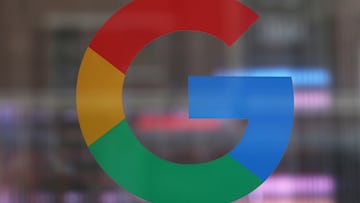Why is Google’s stock down? Could the DOJ force the tech giant to break up?
The FTC has issued guidance as to how the courts should address Google being found liable for anti-competitive behavior, and it is taking a toll on the company’s stock price.


Though Google’s stock price is up relative to its position a year ago, it has fallen by 13 percent over the last month as tech stocks see a major selloff by investors. The trend away from tech stocks, which has impacted major players in the space like Apple, Microsoft, NVIDIA, and others, is in part based on the overvaluation of these stocks that have taken place over the last year as many investors became entranced by the profit-generating potential of artificial intelligence, or AI. With the full power of AI yet to bring the returns investors are looking for, traders have had to tamper with their expectations and recalibrate the value of many of these assets.
Google’s additional pain caused by anti-competitive practices
However, for Google, other issues damage the are hurting the financial position of the company. The Federal Trade Commission, the agency responsible for regulating markets and preventing illegal monopolistic or anti-competitive behaviors by companies, filed an amicus brief on Tuesday, August 13. In its own words, the document “outlines how the court should consider potential remedies when determining effective relief to restore competition.”
The brief was sent to the Judge in the case, Honorable James Donato, who serves as United States district judge of the United States District Court for the Northern District of California. While Judge Donato will be issuing the ruling, that does not mean that the Department of Justice can’t intervene with their own case. A suit alleging similar violations was issued by the Department of Justice and over a dozen states for very similar violations Google was found guilty of in a California court.
FTC outlines remedy concerns in amicus brief after jury finds Google illegally monopolized app store. Effective relief shouldn’t allow Google to reap the rewards of illegal monopolization, the FTC’s brief says: https://t.co/ls0nHbYxVF
— FTC (@FTC) August 13, 2024
The court case the brief was prepared for was brought by Epic Games, a digital game maker who accused Google of anti-competitive behavior in managing the Andriod App Store. In that case, a jury in California found Google liable for illegal monopolization. The various US legal precedents cited by the FTC called on the federal government “to put an end to the combination and deprive the defendants of any of the benefits of the illegal conduct and break up or render impotent the monopoly power found to be in violation of the Act.”
1. Last year a jury found that Google violated the law through illegal monopolization related to its App Store.
— Lina Khan (@linakhanFTC) August 13, 2024
As the court now considers how to remedy Google’s law violation, @FTC filed a brief laying out principles for crafting an effective remedy.https://t.co/WJJJ7ptYwH
The brief explains that a jury found that Google had “willfully acquired or maintained durable monopolies in the markets for Android App Distribution and Android In-App Payment Solutions for digital goods and services transactions.” For application developers like Epic Games, this monopolistic power created a dependence on Google that hurt their bottom line while allowing Google to profit from the dependence it created as an entry point to Andriod users. The courts now have broad powers to break Google’s monopoly and force them to compensate competitors that their anti-competitive behavior negatively impacted them.
Related stories
The steps the FTC recommends the courts take in addressing how to right the situation if implemented, would be historic. Breaking up Google’s monopoly in the Andriod App Store would send a warning to others engaged in similar practices in digital markets. What the FTC seeks to do is reduce the “incumbency advantage” tech giants have in digital markets. By analyzing consumer and corporate behaviors, the FTC can create a framework to understand how these monopolistic powers are obtained. "
Users are often less likely to switch to competing platforms given the presence of large numbers of developers on the incumbent platform, and developers who may otherwise offer their products on a competing platform are often less likely to do so because the competing platform lacks a viable customer base.
FTC on consumer and corporate behavior
However, as these monopolies grow, consumers lose out on the presumed benefits of competition. Other economic schools argue that monopolistic competition is the obvious result of competition, which is why markets require regulation to intervene when larger entities limit innovation. Now it is up to the courts to determine what actions Google will be forced to take.
Complete your personal details to comment